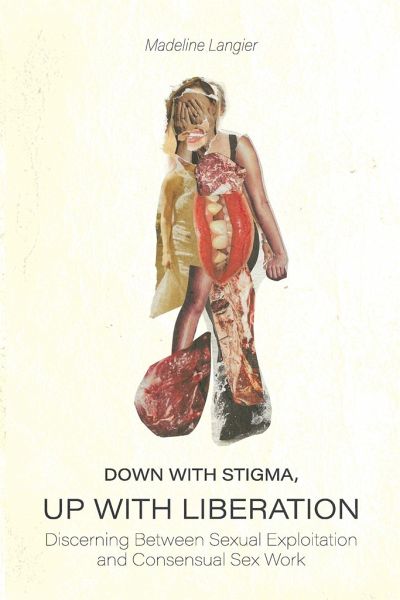
Down With Stigma, Up with Liberation
Discerning Between Sexual Exploitation and Consensual Sex Work
Herausgeber: Jutras, Jessica
Versandkostenfrei!
Versandfertig in 1-2 Wochen
24,99 €
inkl. MwSt.

PAYBACK Punkte
12 °P sammeln!
In Canada, sex workers continue to experience stigma and criminalization despite changes to the policy. In many regions across the globe, the consensual sale of sex is criminal, thereby limiting fundamental human rights and dictating persons' right to bodily autonomy. While consent is the primary element of the rights of sex workers, a problem arises when the industry becomes exploitative. Exploitation in the sex industry is the course leading to sex trafficking and rape for profit. Crime and harm flourishes in the dark hidden areas of the world, which is why an ongoing conversation about the ...
In Canada, sex workers continue to experience stigma and criminalization despite changes to the policy. In many regions across the globe, the consensual sale of sex is criminal, thereby limiting fundamental human rights and dictating persons' right to bodily autonomy. While consent is the primary element of the rights of sex workers, a problem arises when the industry becomes exploitative. Exploitation in the sex industry is the course leading to sex trafficking and rape for profit. Crime and harm flourishes in the dark hidden areas of the world, which is why an ongoing conversation about the differences between consensual sex work and sex trafficking is essential. In order to reduce stigma, we must continue to have difficult conversations about uncomfortable topics in the hopes that one day they no longer seem uncomfortable. Millions of people particulate in the sale of sexual services, and the clear distinction between consensual and coerced forms can allow for the decriminalization of sex work with attention to the needs of victims. The potential for harm is enough to drive legislation, and there is hope for a shift to harm reduction and empowerment. Victims of sexual exploitation and abuse will not wait for politics to catch up.












